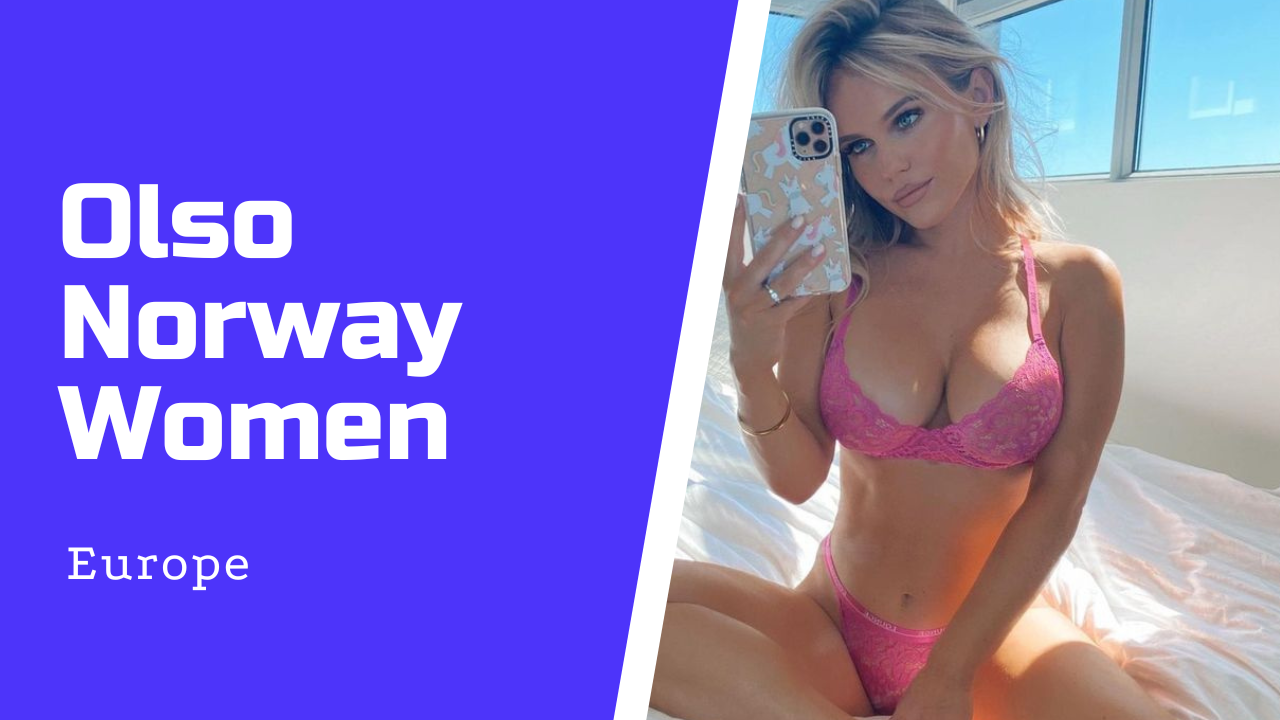The image of beautiful Nordic women in Norway often captures attention worldwide, but this perception only touches the surface of who Norwegian women are. Too often, such stereotypes focus solely on physical appearance, which oversimplifies and objectifies the diverse identities of the women in Norway. Beyond physical traits like blonde hair and blue eyes, norwegian women are frequently celebrated for their intelligence, strength, and progressive roles in society. These qualities represent more than a superficial ideal; they are a reflection of how culture, education, and equality have shaped the women of Norway.
In broader society, the portrayal of norwegian women as beautiful Nordic women has often erased their rich heritage of personal and professional achievements. It’s crucial to challenge these reductive stereotypes to see a more comprehensive picture. The women of Norway are empowered, socially aware, and actively shaping their communities in tangible ways. They embody qualities that expand beyond the beauty myth to include leadership and equality in their daily lives. These women stand out not only for their aesthetics but for their resilience and contributions to Norwegian society.
When people from outside Norway fixate on the physical beauty of norwegian women, they overlook the much larger areas of impact that these women lead, including business, education, activism, and public service. Like many modern women around the world, women in Norway operate under the same pressures and responsibilities people face globally, making their efforts and accomplishments even more vital to acknowledge.
A Day in the Life of Norwegian Women

The lives of women in Norway reflect a healthy balance between work, education, and personal goals. Norway is known for its high standards in quality of life and gender equality, and norwegian women certainly benefit from these societal factors. Education plays a pivotal role in shaping these women, as most women from Norway pursue higher education as part of their individual growth and independence. With universities packed with female students, norwegian women have access to advanced academic opportunities that allow them to thrive in various professional sectors.
In fact, women in Norway excel in education and make strides globally in academic pursuits. Whether it’s leadership roles in education, healthcare, or technology, norwegian women often take charge of their careers. This commitment to knowledge goes beyond economic ambition; for many norwegian women, education is an integral part of personal satisfaction and a symbol of gender parity. The country scores high in gender equality standards, and this has paved the way for norwegian women to reach new heights in academia and career sectors previously dominated by men.
Daily life for norwegian women also consists of social awareness, where they take an active role in progressive causes and civic activities. For instance, conversations surrounding climate change, equality, and social justice are deeply embedded in public discourse, and many norwegian women are drivers of these conversations. They balance these social obligations while embracing personal time for wellness, physical activity, and outdoor adventure, often reflecting a powerful sense of balance between work and play.
How Women in Norway Navigate Parenthood and Careers?
Parents worldwide face challenges in balancing work and family, and women of Norway are no exception. What separates norwegian women is access to one of the most progressive parental leave policies available globally. Norway’s generous paid maternity and paternity leave allows both parents to share in child-rearing responsibilities. This equality gives norwegian women a better opportunity to return to the workforce without sacrificing family life. With 49 weeks of paid parental leave for mothers and an additional fathers’ quota, the framework is created so that family responsibilities are more equally distributed.
Many norwegian women are able to maintain careers without feeling pressured to choose family over profession. The system acknowledges that work and family life are deeply connected, and norwegian women embrace this balancing act with the help of strong institutional support. The gender wage gap is smaller in Norway compared to many parts of the world, creating an environment where norwegian women can achieve both personal and professional goals.
Work-life integration is bolstered by accessible, high-quality childcare. Norwegian families have the advantage of subsidized childcare, with many children starting in early childhood programs from as young as one year old. This system supports norwegian women in their pursuit of career success while having peace of mind that their children are cared for in safe and enriching environments. Additionally, schools offer structured learning environments that help accommodate working parents.

In keeping with their cultural value of equality, norwegian women do not face as much stigma about working long hours or remaining focused on their professional ambitions while simultaneously being mothers. The shared role of childcare, supplemented by paid parental leave and state-sponsored services, means that norwegian women can meet their individual objectives as workers and as mothers without feeling pressured into prioritizing one role at the expense of the other. This societal structure has contributed significantly to avoiding career gaps and facilitating economic empowerment for women from Norway.
The Unique Characteristics of Norwegian Womeny
Norwegian women are known for their independence, a trait shaped by centuries of social structures that emphasize equality, self-reliance, and respect. This independence does not manifest as detachment or aloofness but is often balanced with a deep sense of humility. Women in Norway are raised with the understanding that personal accomplishments are valuable, but they are also encouraged to remain grounded, avoiding self-promotion. Indeed, Norwegian culture frowns upon drawing unnecessary attention to oneself, which is why a Norwegian woman may come across as unassuming despite her achievements.
The blend of these characteristics can be seen in the way Norwegian women approach both professional and personal relationships. Many women from Norway manage to balance successful careers with family responsibilities, a reflection of their sense of autonomy. But their independence is always complemented by a sense of egalitarianism. This means that ambition is not defined by a strict hierarchy of importance or superiority, but by a belief that all individuals, regardless of their role, contribute equally to society.
Confidence in Norwegian women often presents itself quietly. They carry themselves with assurance, yet there is no need for the loud expressions of success that may be seen in other cultures. This creates an interesting dynamic where Norwegian women, while undeniably capable and assertive, maintain an aura of modesty and respect that plays into their wider cultural values.
Additionally, the beauty of Norwegian women often reflects more than just physical attributes. The lifestyle they lead, with access to clean air, outdoor activities, and a balanced diet, contributes to their overall physical health. More significantly, the inner strength and self-assuredness derived from equality and independence are qualities that many consider quite attractive in beautiful Nordic women. The natural beauty of Norwegian women is closely tied to the balanced and self-sufficient lives they foster both individually and collectively.

How Social Equality Changes the Lives of Women of Norway?
Gender equality is embedded deeply within Norwegian society, providing countless benefits to the women of Norway. Decades of progressive reform in areas like education, employment, and political representation have ensured that women from Norway have access to opportunities that were once reserved primarily for men. The emphasis on equality has allowed them to shape their own futures with the same level of agency and autonomy that is seen among their male counterparts.
The effects of this social equality are evident in both the workplace and the home. Norwegian women enjoy equitable access to higher education, making them highly qualified professionals in areas such as law, medicine, and technology. Many women in Norway hold prominent positions in business and government, a reflection of how deeply ingrained equality has become within Norwegian society. The government’s commitment to gender balance in leadership positions, paired with family-friendly policies and welfare programs, reflects a societal understanding of the importance of equal opportunity.
Even in traditionally male-dominated industries, Norwegian women have made significant inroads, catalyzed by a culture that values fairness and respect for all. The culture of equality frames gender as an irrelevant factor in determining competence or capability. This dynamic is particularly evident in political representation, where Norwegian women have held senior government positions for decades. In fact, approximately 45% of the members of the Norwegian parliament (Stortinget) are women, showcasing a political landscape that actively reflects a commitment to social equity.
Outside the professional sphere, domestic life in Norway also places a high value on cooperation and shared responsibilities. The balance of power and responsibility between men and women in family settings reflects the broader social dynamic of equality. Many Norwegian families operate without rigidly defined gender roles, often sharing tasks such as childcare and household management. This way of life not only facilitates a more balanced work-life dynamic but also ensures that the emotional and domestic labor weight is distributed evenly across genders.
Exploring the Role of Tradition and Modernity for Norwegian Women in Today’s Society
The women in Norway find themselves at the confluence of tradition and modernity balancing a forward-thinking society with practices that stem from their cultural roots. Norwegian culture places significant importance on preserving traditions related to nature, community, and simplicity, while the progressive evolution of society continues to challenge, reshape, and modernize old conventions.

In historical narratives, women from Norway are often associated with the deep-seated values of family and community life, practices that have been passed down through generations. In rural areas and smaller towns, life is often governed by familiar traditions seen in customs like local festivals, outdoor activities, and the centrality of familial bonds. Even though modern Norwegian women sharply advocate for autonomy in their professional and personal lives, many continue to embrace these traditional elements as part of their identity.
Nevertheless, contemporary society has ushered in a new era that encourages women to play varied roles that extend far beyond traditional domestic spheres. The Norwegian welfare state has been central to ensuring strong support systems, through which maternity leave, parental leave, and welfare services empower women to pursue professional careers while raising families. Progressive employment policies, flexible working hours, and significant gender-neutral parental leave initiatives make it possible for women in Norway to experience both career success and family satisfaction without one undermining the other.
Norwegian women participate in numerous outdoor recreational activities, inspired both by tradition and modern health trends. The emphasis on physical wellness is demonstrated by how the local landscape the endless fjords, forests, and mountains creates opportunities for healthy living. The connection between nature and tradition is a core component of Norwegian life. Despite the modern tools at their disposal, many Norwegian women still enjoy skiing, hiking, and other outdoor pursuits as ways to stay active and connected to their roots.
Another key element is how modern forms of communication and technology have been embraced by Norwegian women without losing sight of their importance to social connectivity. While digital communication connects many parts of daily life, interpersonal relationships remain grounded in a tradition of authenticity. A Norwegian woman may be well-versed in modern communication platforms, but will likely value genuine, face-to-face connections as key touchpoints in her personal and professional life.
Yet, the blending of tradition and progress has not been without its challenges. The integration of global culture into everyday life, fueled by Norway’s position as a prosperous and highly connected society, has forced the people of Norway to continuously redefine old conventions. As a result, Norwegian women are constantly adapting while remaining mindful of their core values. For example, Scandinavian design a hallmark of modernity still takes into account the country’s historical relationship with simplicity and nature.
How Women from Norway Are Shaping Industries?

Women from Norway are leaders across numerous fields, making waves both on the international stage and within the borders of their Nordic home. From winter sports champions to tech entrepreneurs, these women are constantly challenging stereotypes and setting examples. The resilience and dedication that many Norwegian women display is a testament to how they juggle multiple roles and responsibilities with an eye toward innovation and success.
The famous ski slopes of Norway have been home to many world-class athletes. Many Norwegian women have excelled in winter sports, bringing home medals from the Olympics and making names for themselves in skiing, snowboarding, and biathlon. This success transcends athletics, as the values instilled by discipline and focus have carried over into other industries. Take for instance the growing presence of women of Norway in the tech startup scene, where they are leveraging their skills to push boundaries, particularly in AI development, fintech, and sustainable technologies.
Part of their drive is rooted in the country’s strong support for gender equality, which positively impacts the opportunities women in Norway have when they aim to explore new industries, climb the corporate ladder, or innovate within startups. The government’s policies promoting work-life balance also encourage more women to participate in sectors dominated by men globally. Today, there is an impressive number of Norwegian women holding leadership positions, some leading multi-million-dollar ventures across various fields such as technology, energy, and healthcare.
What Attracts Global Attention to Norwegian Women?
Global curiosity about Norwegian women often stems from a combination of their outward beauty, often described as effortlessly elegant and natural, and the values they embody. The beautiful Nordic women of Norway are frequently associated with features like blonde hair, fair skin, and sharp blue eyes, creating a striking impression internationally. Nevertheless, beauty goes hand-in-hand with the values upheld by women from Norway, which play a significant role in shaping their identity.
Norwegian women’s commitment to equality, fairness, and independence is noteworthy. These values are evident through the respect they command, not only in the workplace but also in society at large. Women in Norway enjoy a high level of autonomy, which is nurtured from an early age. These characteristics make them influential figures when it comes to advocating for issues like sustainability, equality, and corporate responsibility. They have an ability to balance their personal qualities strong character, intelligence, and kindness with deeply rooted social values.
The influence of Norwegian women extends beyond their own country. Through intergovernmental roles, philanthropy, and international business ventures, their voices are heard on global platforms, promoting equitable gender policies and progressive ideas. It is not uncommon to find a Norwegian woman in influential roles within international organizations like the UN, serving as advocates for gender equality and human rights. Norway women are well respected for the leadership they bring to causes that extend beyond national borders.
A Glimpse into Their Journey and Achievements

Gender equality remains a defining characteristic of the modern women of Norway. The country is known globally for its progressive stance on gender issues. Norwegian women have been at the forefront of this movement for decades, securing rights and opportunities that remain out of reach for many worldwide. These accomplishments stem from a unique combination of institutional support, cultural acceptance, and strong individual advocacy by Norwegian women across multiple sectors.
Women in Norway benefited from some of the world’s earliest gender-equality measures, including universal suffrage granted in 1913. Over the years, this foundation has allowed women from Norway to participate in shaping the nation’s policies at the highest levels. Norway is known for its gender quota laws, enacted in 2006, which require that corporate boards consist of at least 40% women. These laws have had a tremendous impact and visibility on the economic front by ensuring that women hold critical leadership roles in industries like finance, energy, and governance.
The education system in Norway plays a pivotal role in providing women with equal opportunities. Girls in Norway are equally encouraged to pursue academic and career-oriented goals, with a particular emphasis on STEM (science, technology, engineering, and math). These fields, traditionally male-dominated, are witnessing a gradual uptick in female participation, thanks in part to strong advocacy from Norwegian women who are role models for future generations.
Moreover, Norway has some of the most comprehensive parental leave policies globally, ensuring that both parents can take time to bond with their children. This policy not only supports a work-life balance but also actively encourages Norwegian women to remain in the workforce during motherhood, effectively closing the gender pay gap across many industries. Women from Norway continue to push boundaries when it comes to equality, ensuring that future generations will benefit from even more inclusive policies.
- Universal Suffrage: Norwegian women gained the right to vote as early as 1913.
- 40% Quota: Norway government policy dictates the percentage of women required on company boards.
- Focus on STEM: Young women in Norway are being encouraged to enter science and technology industries.
- Generous Parental Leave: The Norwegian government offers extended parental leave, supporting both mothers and fathers equally.
Norwegian women’s achievements in the sphere of gender equality extend internationally. Their influence in shaping global policies is seen in both Europe and worldwide, with many playing essential roles in international organizations. Due to this commitment to justice and equality, the characteristics associated with a Norwegian woman are often linked to competence, confidence, and an unwavering dedication to equal rights.
